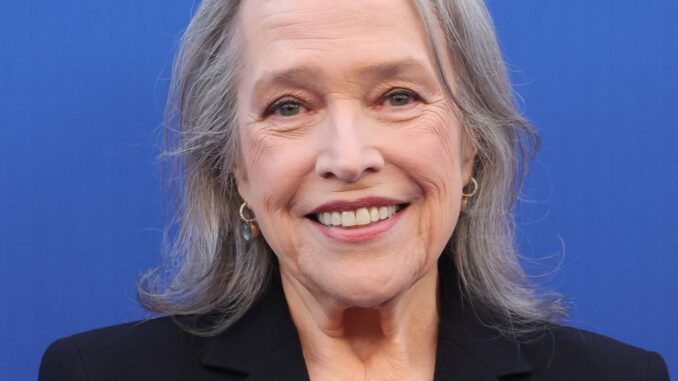
The words hung in the air, a quiet confession whispered not just by an actor, but by a titan of the craft, Kathy Bates. “A woman my age would never have such a role,” she might have mused, a phantom echo of Hollywood’s unwritten rules. Her reflection on being cast as Matty Matlock wasn’t just a comment on a job offer; it was a testament to the seismic shifts rumbling through an industry famously resistant to change, a crack in the gilded cage of ageism and gender bias, made visible by the brilliance of her own casting.
For decades, the cinematic landscape has been mapped with invisible borders, delineating who gets to be the hero, the lead, the central intellectual force. Young, predominantly male, or if female, young and often defined by romantic or familial connections. For a woman of a certain age – an age that often brings with it a depth of experience, a sharper wit, and a formidable gravitas – the roles typically recede into the periphery: the wise matriarch, the eccentric neighbor, the long-suffering spouse. Lead roles, particularly those demanding sharp legal minds, intricate plotting, and consistent screen presence, were the exclusive domain of men like Andy Griffith’s beloved Matlock – a character whose wisdom was intrinsically tied to his silver hair and male authority. Bates’s imagined internal monologue, "A woman my age would never have such a role," was not born of self-doubt, but of a keen, weary understanding of these entrenched systemic biases.
Then came Matty Matlock. The very name, a subtle twist on a familiar brand, signaled a revolution. This wasn't just a supporting character or a cameo; this was the eponymous lead, a brilliant attorney tasked with unravelling complex legal puzzles, often with a mischievous twinkle in her eye and an unyielding moral compass. It demanded intelligence, charisma, and a gravitas that could only be forged over a lifetime. It demanded Kathy Bates. Her legendary career, punctuated by fiercely independent and unforgettable performances – from the chilling Annie Wilkes to the indomitable Molly Brown – had already redefined what a "leading lady" could be. But even for her, the notion of anchoring a major network procedural at her stage of life must have felt like a defiant whisper against the roar of industry convention.
To picture Bates stepping into Matty’s shoes is to envision not just an actress inhabiting a character, but an embodiment of wisdom taking center stage. Her face, etched with the stories of a life lived fully, conveys more in a single glance than pages of exposition. Her voice, capable of both a comforting murmur and a thunderous pronouncement, carries the weight of lived experience. Matty Matlock, as envisioned through Bates, isn't just a lawyer; she's a sage, a survivor, a woman who has seen enough of the world to understand its nuances and its injustices. Her "age," once a perceived barrier, becomes her superpower, lending authenticity to every courtroom cross-examination, every quiet moment of reflection, every wry observation. It’s not about defying age; it’s about celebrating it as a source of strength and wisdom.
Bates’s initial sentiment, a quiet acknowledgment of the industry’s historical limitations, makes her casting all the more potent. It highlights not just her individual triumph but the collective yearning for more representative storytelling. It signals to younger actresses that their careers need not dwindle with the passage of time. It tells audiences that compelling narratives can be woven around characters who reflect the rich tapestry of the real world, where intelligence and dynamism are not the exclusive province of youth. Her Matty Matlock is a beacon, illustrating that the "never" of yesteryear is slowly but surely giving way to the "now," paving a path for a future where talent, experience, and sheer force of personality truly know no age or gender bounds. Kathy Bates, in her quiet reflection, didn't just accept a role; she shattered an illusion, proving that some stories are best told by those who have lived long enough to truly understand them.
